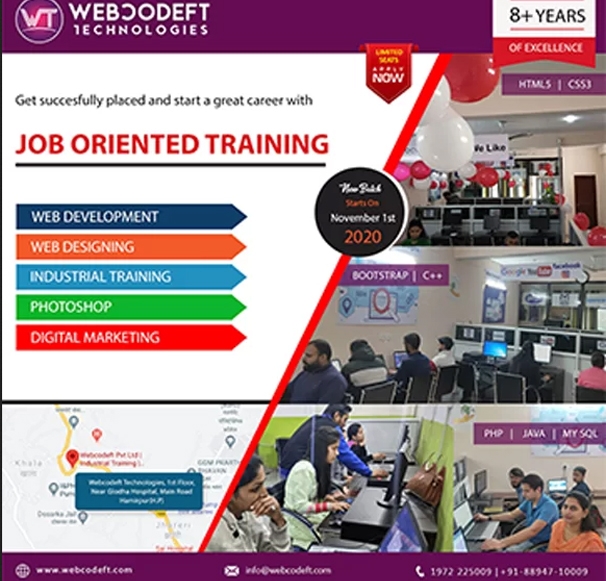

Career-Focused Coding Training: Propel Your Professional Journey
Embarking on a journey into the world of coding is not just about learning a programming language; it’s about acquiring skills that can propel you into a rewarding and job-oriented career. In this article, we’ll explore the significance of job-oriented coding training, the key elements that make it effective, and how it can shape your professional journey.
1. The Demand for Job-Oriented Skills
In today’s competitive job market, employers are seeking candidates with practical, job-oriented skills. Coding has become a crucial skill across various industries, and job-oriented coding training programs are designed to equip individuals with the specific skills demanded by employers. This demand-driven approach ensures that you are prepared for the realities of the workplace.
2. Real-World Application of Coding Skills
Job-oriented coding training goes beyond theoretical knowledge, emphasizing the real-world application of coding skills. It focuses on practical projects and case studies that simulate the challenges professionals face in their day-to-day work. This hands-on approach ensures that you not only understand coding concepts but also know how to apply them in a professional setting.
3. Tailored Training for Industry Relevance
Every industry has its unique coding requirements. Job-oriented coding training programs are often tailored to specific industries, ensuring that the skills you acquire align with the needs of the job market. Whether it’s web development, data science, or software engineering, the training is customized to make you industry-ready upon completion.
4. Building a Robust Portfolio
One of the key outcomes of effective job-oriented coding training is the creation of a robust portfolio. This portfolio showcases the projects you’ve worked on during your training, giving potential employers a tangible demonstration of your coding abilities. A well-constructed portfolio can significantly enhance your job prospects and set you apart in a competitive job market.
5. Practical Problem-Solving Skills
Coding is not just about writing lines of code; it’s about solving real-world problems. Job-oriented coding training emphasizes problem-solving skills by presenting students with challenges that require analytical thinking and creative solutions. These problem-solving skills are highly valued by employers seeking candidates who can contribute meaningfully to their projects.
6. Industry-Relevant Tools and Technologies
The tech landscape is ever-evolving, and job-oriented coding training ensures that you are well-versed in the latest tools and technologies used in the industry. Whether it’s working with popular frameworks, version control systems, or integrated development environments (IDEs), the training exposes you to the tools commonly used in professional settings.
7. Collaboration and Teamwork
In the workplace, coding is rarely a solitary endeavor. Job-oriented coding training often incorporates collaborative projects that mirror real work scenarios. Learning to collaborate with team members, understanding version control, and effectively communicating your code are essential skills emphasized in this type of training.
8. Job Placement Assistance
A distinguishing feature of job-oriented coding training programs is their focus on helping graduates secure employment. Many programs offer job placement assistance, connecting students with potential employers, providing interview preparation, and offering career guidance. This support ensures that the skills acquired during training directly translate into meaningful employment opportunities.
9. Continuous Learning and Skill Updates
Coding is a field that requires continuous learning due to the rapid pace of technological advancements. Job-oriented coding training instills a mindset of continuous learning, encouraging graduates to stay updated on industry trends and acquire new skills throughout their careers. This adaptability is crucial in a tech landscape that is always evolving.
10. Empowering Your Professional Journey
In conclusion, job-oriented coding training is not just about learning to code; it’s about empowering your professional journey. It equips you with the skills, knowledge, and mindset needed to thrive in the dynamic and competitive world of coding. Whether you’re a beginner or looking to upskill, investing in job-oriented coding training can be a strategic step toward a fulfilling and successful career.
To explore more about job-oriented coding training, visit Job-Oriented Coding Training. Propel your professional journey with focused and industry-relevant coding education.








